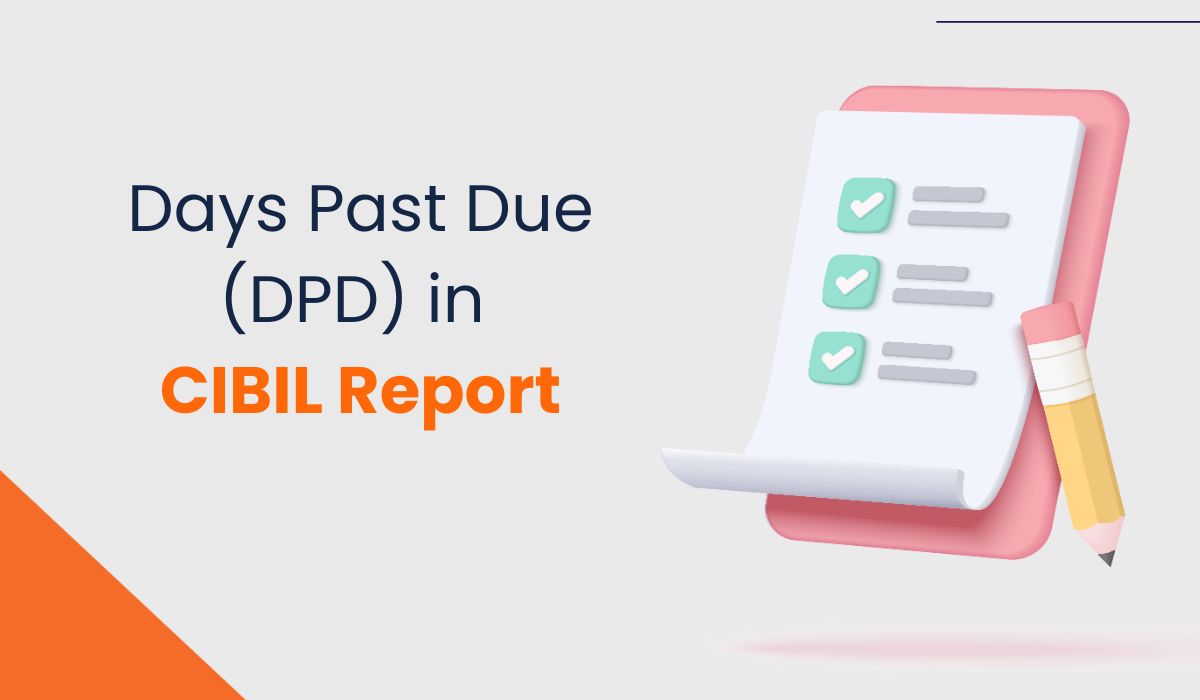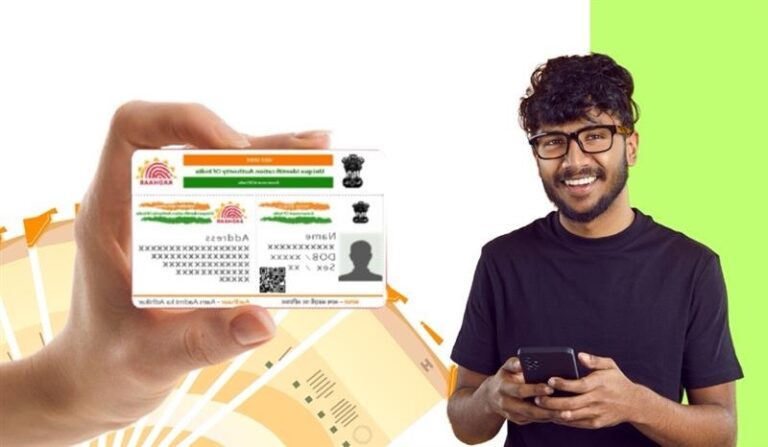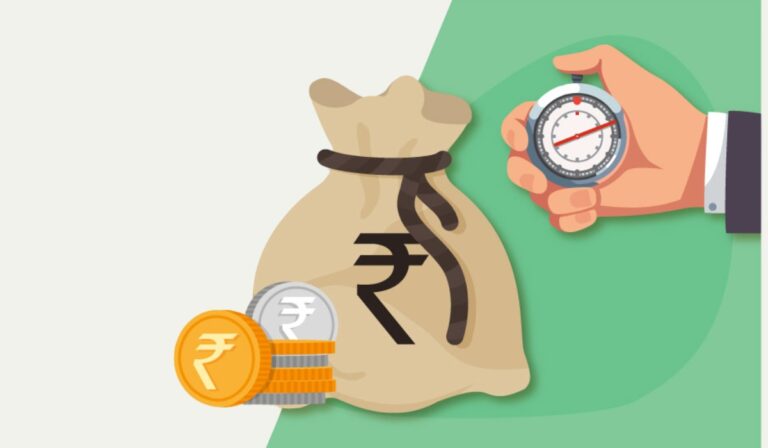Your CIBIL report is much more nuanced than a somewhat chaotic inundation of credit terms. It is descriptive of every detail related to your credit history, and one of the more important details encapsulated is your DPD status. To know all about DPDs and their work, read on.
What is DPD (Days Past Due)?
Days past due, although self-explanatory, denotes your unpunctuality in debt repayments. It signals the number of days by which you have missed your stipulated payment deadline. A blemish of such a nature can greatly put off future creditors, and hence its avoidance becomes obvious.
For example:
If a payment deadline falls on the 15th of a month, and you make the payment on the 16th, then you will have a DPD of 001 which when interpreted stands for 1 Day Past Due or 1 DPD.
Meaning of DPD in CIBIL Report:
The tactility of your impunctuality, if any, is gauged by your credit score. It can hold either of the four following values:
- STD
- XXX
- 000
- A three-digit numeric
If your credit report is the recipient of the first three of these values, then you have nothing to worry about. STD and 000 are interchangeable and their meanings are similar. They both denote timely payments of debt and appease the inherent monetary stringency of creditors. An XXX remark on your credit report denotes the failure of the creditor to provide the necessary loan information, which does not imply you whatsoever. If your credit report is reflective of the fourth kind, then blissful oblivion becomes menacing. This numerical value greater than 0 is indicative of the number of days by which you have exceeded the repayment deadline. The higher the number, the sterner the consequences. It is therefore perpetually advised to keep that number as low as possible, if not 0.
Understanding DPD Values: 000, XXX, STD, SUB, DBT, LSS:
An in-depth autopsy of different DPD values is as follows:
- XXX: This value denotes the inability of the lender at the time to provide the relevant credit information. The absence of this information renders its nature speculative and hence bears no consequences to you. In elementary terms, it is favorable to have this DPD value in your report.
- STD: Abbreviated for standard, this means that all your payments have been timely, and your financial discipline has been exemplary. A string of these STD embeddings in your CIBIL report helps in boosting your overall CIBIL score.
- 000: This means the same thing as standard, and the three zeroes simply indicate the number of days by which you have missed any payments, which is 0.
- SUB: This indicates that payments are consistently being made 90 days (about 3 months) after the due date. A blemish of such kind is significant and is a deterrent to future creditors.
- DBT: Abbreviated for doubtful, it denotes that the debtor has been consistently sub-standard in debt obligations for over 12 months. The chances of recuperation in such cases, if not zero, are slim at best.
- LSS: The debtor marked as such is signed off as a loss-making asset and the amount lent is not deemed collectable anymore. The presence of this blemish is downright egregious to any potential lender and the chances of securing any loans in the future remain null.
- SMA: Abbreviated for Special Mention Accounts, this grade represents STD marked account slowly moving towards sub-standard delinquency.
Can DPD values be altered?
- Since DPD values are assigned based on your actual credit history, they cannot be changed arbitrarily. But there are precedents set for disputing DPD values incorrectly assigned from bogus accounts or from accounts not belonging to you.
- You can resolve these fallacies by downloading a copy of your CBIL report and screening it thoroughly for any inaccuracies. To dispute any incorrect information in your credit report, you can always raise a complaint with TransUnion (the CIBIL ascertaining body).
- While filing a complaint, you will need to provide appropriate documentation to back up your complaint. After thorough review and confirmation with the lenders concerned, the credit bureau will make the relevant changes, if validity is found to be resolute.
- To avoid such inaccuracies in the future, it is imperative to regularly monitor your CIBIL report.
DPD’s Updating Frequency in your CIBIL report:
DPDs only change if there is significant deterioration or improvement in your payback merit. If you had a DPD value of STD to begin with, then it will only change if you miss a repayment deadline. If you miss it by 30 days, then the STD value is erased and a new DPD value of 030 is assigned, whose variability is again dictated by your future credit behaviour. High volatility in your DPD value is not reflective of good financial discipline, and hence a constant DPD value of STD or 000 is desirable.
Can the DPD in CIBIL impact the CIBIL Report?
DPD has a tangible effect on your CIBIL as it gives lenders an overview of your proclivity towards responsible debt behaviour. A DPD of either STD or 000 is appeasing to creditors and greatly impetuous to your credit score. A DPD of some numeric value can prove to be detrimental to your CIBIL report. Since it is indicative of the additional time you have borrowed to repay your obligations, it is not a good look for future creditors.
How does DPD Affect Your Credit Score?
A favourable DPD value can boost your credit score. An STD or 000 value maintained for a prolonged period shows timely payments on your side and is reflective of the same to the creditor. A numerical DPD is a deterrent to a healthy credit score and should be ideally curbed to 0. A consistently maintained numeric DPD is vicious to a healthy credit.
Also, read: Smart ways to improve CIBIL Score
How to Manage and Improve Your DPD:
Some steps to improve your DPD, although generically overstated in various disquisitions online, are sparsely followed in practice. Some of these steps are reiterated below:
- Pay your dues on time: Goes without saying, that timely payments are of paramount importance when trying to improve your DPD notation. Timely payments favourably stagnate your DPD at 000 or STD.
- Priority allocation of funds: If you are not able to make your payments on time, then consider prioritizing. Pay off the debts with steeper implications first, before moving on to loans with lower stakes.
- Negotiation with lenders: Consider reaching out to your lenders in case of circumstantial extremities. They may be willing to offer temporary relief in terms of longer debt tenure or reduced EMIs. You can also discuss alternative payment plans which will help you mitigate some of the burden.
- Monitor your credit score regularly: It is strongly advised to periodically screen your CIBIL report for irregularities. Any inaccuracies may inadvertently assign you an incorrect DPD value.
How do I locate/read DPD in CIBIL report?
The interpretations of the various DPD scores have been hitherto discussed. As for its location on your CIBIL report, it lies in the section which lists your various credit accounts. This section lists everything relevant to the account, including the name of the lender/lending institution, type of credit, current balance, and repayment history. It is this section that enlists your DPD value. Always strive to improve your DPD over a larger period so that momentary lapses can be deemed microscopic.
Is there a difference between DPD and credit score, and if so, what is it?
Your credit score is a three-digit number estimating your creditworthiness. It is always going to be a number whereas your DPD may vary between being a number or an abbreviated notation like STD. Though the main difference lies in the representation, they represent the same idea. Hence their cardinality in your credit health is of the same magnitude.
Common DPD errors and how to dispute them?
Some common errors in your DPD and their fix are given below:
- Incorrect DPD: This error is indicative of an inaccurate DPD reading. This error occurs when a value other than 000 or XXX is displayed on your report even if you have made all your payments on time.
Fix: Ask your lender to address this entry ASAP, following which you will need to fill out a dispute resolution form from the CIBIL report. Once the validity of your claim is verified by the lender, CIBIL will update your reading accordingly.
- False overdue: This error occurs when there is still some amount being rendered unpaid in your report even though you have paid off all your dues.
Fix: Contact your lender and get a signed no-objection letter stating the said inaccuracy. Then affix this letter to your dispute resolution form from CIBIL and then wait for the updating.
Frequently Asked Questions
- I am planning to apply for a new loan soon. How much time does it typically take for a DPD to disappear from my credit report?
In cases of the most extreme of DPD grading (LSS or DBT), your DPD assignment stays on your report for the next 7 years.
- Can negotiating with my lender help improve a DPD error on my credit report?
Yes, negotiating with your lender will help you satiate some of the burdens you have undertaken. Try negotiating for alternative payment plans which may suit you better. You can also request an extension in the tenure of your debt, which leads to more digestible EMIs for you to pay.
- Do all credit cards report DPD information to credit bureaus?
Yes, it is a mandate for credit cards to do so.
- How often should I check my CIBIL report for DPD accuracy?
It is advised to check your DPD grading in your CIBIL report as often as you can to screen for any inaccuracies.
- What are some alternative ways to improve my credit score besides maintaining a perfect DPD record?
Timely payments, low credit utilization ratio and non-simultaneous loan applications can help boost your credit score.
- Can paying off a loan early help improve my DPD?
Yes, early repayments help you secure the STD or 000 grading.
- Is there a way to get a loan even if I have a high DPD on my credit report?
Though the chances of securing a loan through the route of traditional lending institutions are slim, NBFCs like PayMe are always reliable alternatives for loans.
- How long does it take for a negative DPD to no longer impact one’s credit report?
It typically takes up to 7 years past the delinquency date for DPD to no longer impact your score.
- Are there specific actions borrowers can take to prevent negative DPD values in their credit reports?
Among the various concrete steps that can be taken, the most important of them is to make timely payments.
- Can a single missed payment significantly affect one’s credit score?
The damage dealt by a single missed payment will likely be innocuous, but a string of missed payments will negatively impact your credit score in the long run.
Also, check:
- CIBIL Score for Bike Loan
- CIBIL Score for Car Loan
- CIBIL Score for Personal Loan
- How to get a personal loan with a CIBIL defaulter status?
- CIBIL Customer Care Number
- What are all the mistakes that Can Lower your Credit Score?
- CIBIL Login and Registration Process
- What is an ECN number in the CIBIL Report?
- Does Changing Your Name Affect Your CIBIL Score?
- How to check and remove your name from CIBIL’s Defaulter List?




